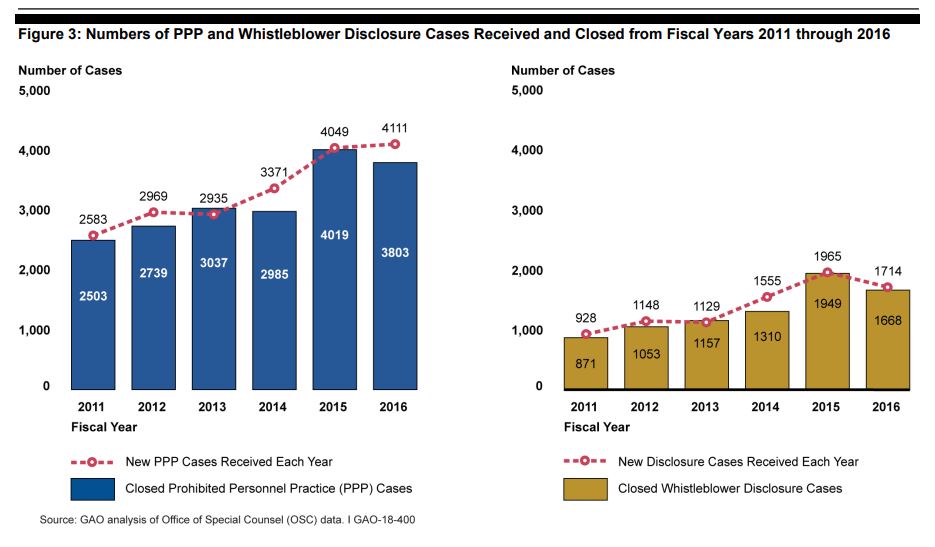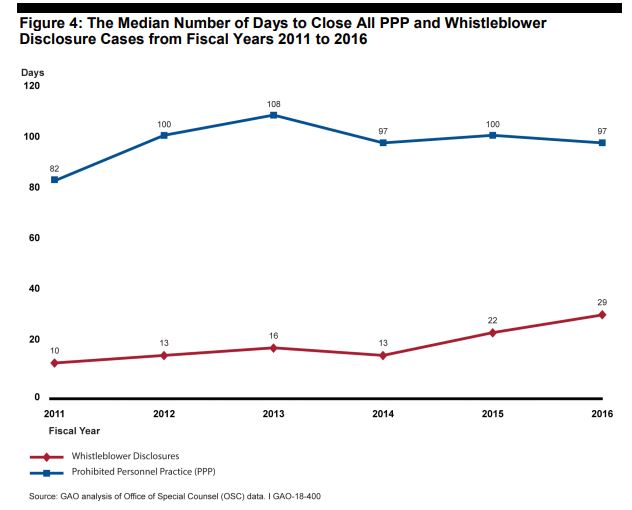
Congress to tackle MSPB quorum, reconsider longer probationary periods this week
Oversight committees in both chambers of Congress this week will consider the president's nominees to sit on the Merit Systems Protection Board, along with other...
Congress is attempting to take a few long-awaited steps this week to put the Merit Systems Protection Board (MSPB) on firmer footing.
The Senate Homeland Security and Governmental Affairs Committee on Thursday is expected to hear from the president’s nominees to fill all three open board seats at MSPB, while the House Oversight and Governmental Reform Committee will consider the agency’s reauthorization.
MSPB’s authorization expired back in 2007. It’s also lacked a quorum for more than a year-and-a-half. Administrative judges within the agency’s field offices have continued to issue initial decisions, but the board hasn’t been able to deliver final decisions on any petitions for review since January 2017.
MSPB is an independent, quasi-judicial agency that mostly rules on federal employees’ appeals.
But employees waiting for a decision on those appeals will likely have to wait slightly longer for a final decision. The committee must clear the nominees before sending their names to the full Senate for a vote.
While the agency has lacked a quorum, Mark Robbins, who President Donald Trump designated as MSPB chairman last January, has continued to vote on the petitions that come to his office. His opinions, however, will be disregarded as the new members replace him and offer their own votes on the agency’s backlog of cases.
Congress is also interested in other changes for the MSPB. The House Oversight and Government Reform Committee is expected to consider two separate bills Tuesday.
One bill would reauthorize MSPB for the first time in a decade and set fees for any employees who files an appeal or claim with the agency. It would also amend a provision in the VA Accountability and Whistleblower Protection Act. The change would allow VA employees in Title 38, typically medical professionals, to appeal directly to MSPB’s board, rather than an administrative judge.
Congress tries again to extend probationary periods
In addition, the committee will mark up the Modern Employment Reform, Improvement and Transformation (MERIT) Act, which would make significant changes to the way agencies fire and discipline poor performers and employees accused of misconduct.
According to the bill, agency heads must give the employee written notice of the firing or disciplinary action within 15 days before taking action against the employee.
Employees have an opportunity to respond within the remaining time of their employment. They can still appeal to the MSPB and have seven days after the firing to submit an appeal.
MSPB must render a decision within 30 days. If the agency can’t issue a decision within that time frame, the disciplinary action is final.
Employees awaiting a decision on their appeals from MSPB can’t receive any pay, bonuses, awards, incentives, student loan repayments or benefits, the bill states.
Rep. Barry Loudermilk (R-Ga.) introduced the MERIT Act last year. The legislation also includes changes to the furlough process and a two-year probationary period for employees and senior executives. Currently, most federal employees have a one-year probationary period.
The bill will likely draw criticism from Democrats during the committee’s markup.
OSC’s backlog grows
Small steps to fully staff and authorize the MSPB come as the Government Accountability Office offered its take on the Office of Special Counsel, which protects federal employees from prohibited personnel practices (PPP) and whistleblower retaliation.
The number of whistleblower disclosures and prohibited personnel practice cases grew by 66 percent between fiscal 2011 and 2016, according to GAO. During that same period, the number of cases that OSC closed grew by another 62 percent.

But despite the growing number of cases, OSC isn’t necessarily referring more whistleblower disclosures or complaints. According to the agency, OSC closes at least 80 percent of these cases because they lacked sufficient evidence to warrant further investigation, OSC lacked jurisdiction over the case or the employee improperly filed the case as a prohibited personnel practice when it should have been a whistleblower disclosure.
OSC also maintains two separate filing systems for PPP and whistleblower disclosure cases, contributing to the confusion, GAO said. The agency is attempting to replace the two systems with one, but the project has encountered delays.
OSC’s backlog has also crept up in recent years, according to GAO. A little more than 24 percent of all OSC cases are pending in the agency’s backlog, which stood at 7,683 total matters in 2016.
Meanwhile, the agency is taking longer to process both kinds of cases and rarely communicates with whistleblowers throughout the process, GAO said. The median time to close a whistleblower disclosure rose steadily in recent years, while the time to resolve a PPP case has fluctuated slightly.

The cases that OSC refers back to an agency take the longest to resolve, according to GAO. The median time to resolve a whistleblower complaint that went back to an agency for investigation took 668 days in fiscal 2016, while some cases have taken as long as 1,523 days.
By law, agencies must investigate a referred case and respond to OSC allegations within 60 days. OSC can grant an extension, which it does often — an average between 2.7 to 4 times per case between 2011 and 2016.
“Agency officials we interviewed told us that they routinely request extensions and OSC rarely or never rejects their initial requests,” GAO wrote. “They explained that in most cases they need extensions to compile necessary information to respond to the referral and to have the investigation approved internally.”
Senate Homeland Security and Governmental Affairs Committee Chairman Ron Johnson (R-Wis.) had asked GAO back in 2016 to examine OSC for reviewing and referring disclosures and PPP cases, citing frustration from whistleblowers.
Copyright © 2025 Federal News Network. All rights reserved. This website is not intended for users located within the European Economic Area.
Nicole Ogrysko is a reporter for Federal News Network focusing on the federal workforce and federal pay and benefits.
Follow @nogryskoWFED






